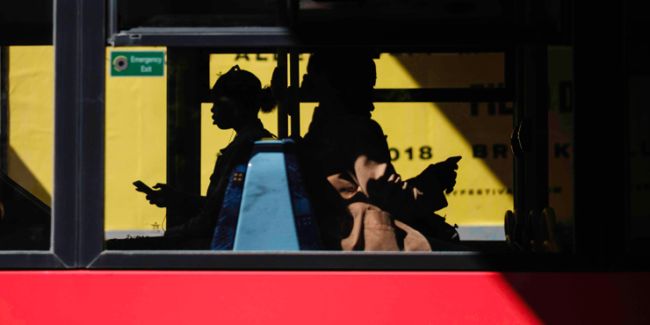Transportation demand management using a personalized approach
The desire to reduce single occupancy vehicle trips is an increasing trend across many parts of the world, including the U.S., and we have been exploring the best ways to achieve transportation behavior change to support this goal.

Personalized Travel Planning
Personalized Travel Planning is an outreach approach based on a face-to-face conversation between a trained Travel Advisor and an individual resident, employee or visitor. Within these conversations Steer uses a Motivational Interviewing technique originally developed in the health sector that we have pioneered in the transportation sector over the past 10 years. This technique involves listening to the individual’s needs, wants and constraints and guiding them towards a solution involving more active and environmentally friendly transportation choices.
These conversations are backed up by resources such as maps, ‘how to guides’ and information about transit services or bike routes. Ideally, they are also complemented by a digital communications strategy and wider community activities. Our approach has been developed over more than two decades from projects undertaken around the world. It recognizes that:
- Simply providing information is not enough to substantially influence travel behavior, most of which is ingrained into habitual patterns – it is also essential to untap underlying motivations for change, and then to support the process of change, which often involves something untried and unfamiliar.
- Every community is different and has its own opportunities and constraints, and within each community, individual circumstances and attitudes also vary – here, the face-to-face approach pays dividends since a skilled Travel Advisor can modify their approach ‘on the fly’ and in response to feedback they receive in real time during the conversation.
- While personalisation is a vital component, common themes often emerge so Travel Advisors can be armed with the training and supporting material they need.
- Since local knowledge and an understanding of the local community is extremely helpful, where possible, Travel Advisors are recruited locally and then undergo a rigorous training program. This has the added benefit of providing a positive legacy for any Personalized Travel Planning program.
The collection of monitoring and customer satisfaction data is built into the Personalized Travel Planning process so that there is learning during the course of each project and from one project to the next.
Success stories
Using monitoring data, and with permission of our clients who appreciate the value of sharing good practice, we have undertaken a review and summarized the headline findings of five recent Personalized Travel Planning programs:
- Green Lake In Motion for King County Metro.
- City of Issaquah 'Salmon Friendly Trips' for King County Metro & City of Issaquah.
- Puyallup In Motion for Pierce County Planning and Public Works.
- Cruz511 In Your Neighborhood for Santa Cruz County Regional Transportation Commission, (SCCRTC).
- Pleasanton Smart Trips Livermore Amador Valley Transit Authority (LAVTA or Wheels Bus).
Overall, across these projects there was a 12% reduction in drive alone trips and an 8% decrease in drive alone mode share, along with corresponding increases in the mode share for more active and sustainable modes such as transit, walking, biking and carpooling.
Our review of these programs has provided valuable lessons which we can apply to future programs. For example, one of the key factors behind the success of these programs is the positive experience for participants who seemed to enjoy the face-to-face interaction, and value the information and advice.
The importance of this is demonstrated by the finding that when the participant rated the helpfulness and courtesy of the Travel Advisor as ‘very good’, they were around three times as likely to reduce their drive alone trips compared with when they were rated as ‘average’ or ‘good’. This effect is illustrated in Figure 1 which compares the proportions of participants reducing their driving by level of satisfaction with the helpfulness of the Travel Advisor.
This finding has implications for how Travel Advisors are recruited and trained, and how they are supported through the course of a program so they can continue to come across as both knowledgeable and friendly.
More generally, we have found that the barriers to sustainable modes of transportation and ways of overcoming them are entirely consistent with the principles of Behavioral Economics and what is sometimes called ‘Nudge Theory’. This is helpful when planning new programs since the likelihood of success can be increased by drawing on the wealth of literature from this field.


















